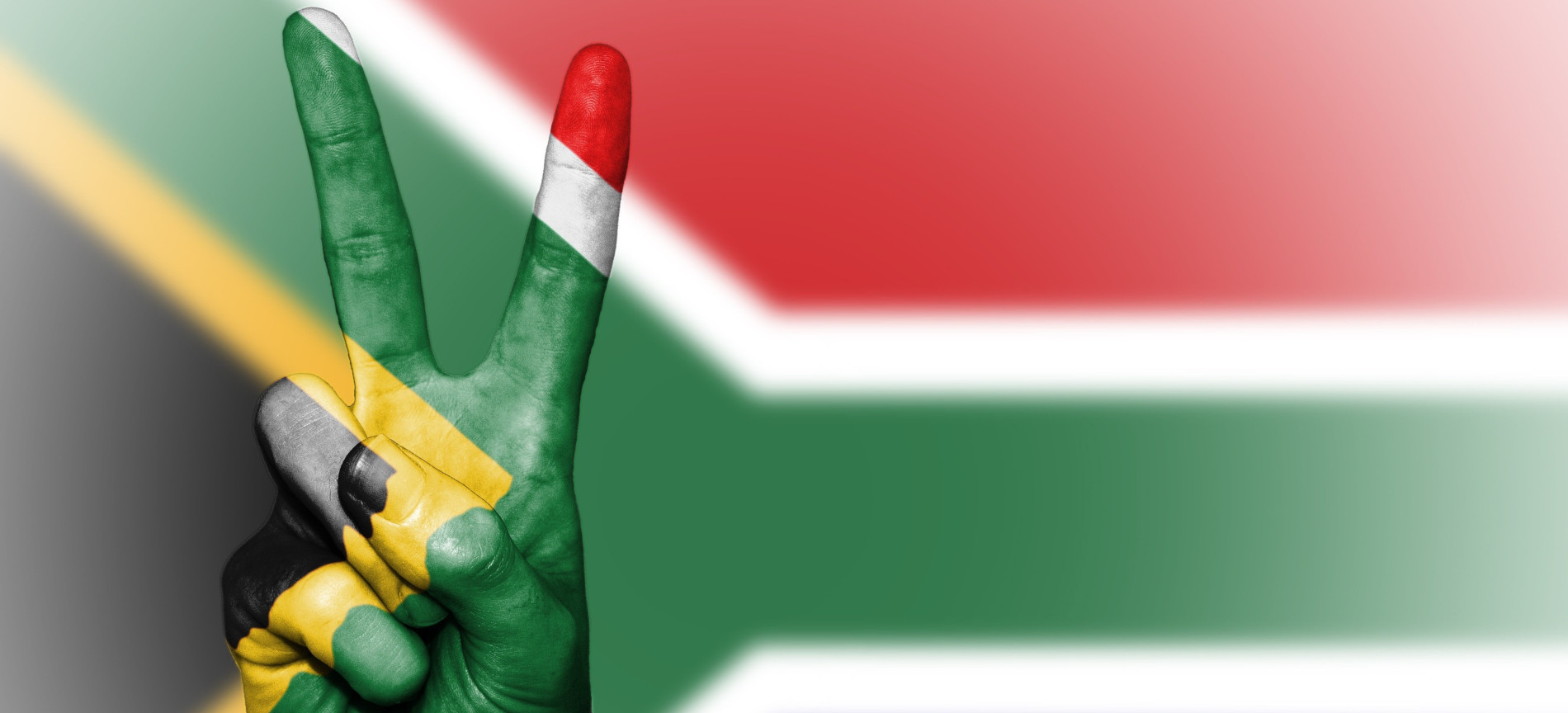 Photo by jplenio on Pixabay
Photo by jplenio on Pixabay
Europe is facing some heat. Literally – with another heat wave grasping the continent – and figuratively with threats to the global order through Russia’s invasion of Ukraine. Profound shifts are happening – with political answers too quick for some, and painfully slow when looking at evidence on the ultimate challenge: human-made climate change and its effects. We have seen indicators for disruptive change in the global order before: terrorism (after 2001), a financial crisis (2008), a global pandemic (since 2020), and, after a long build-up, the drastic effects of a climate crisis coming into focus with numerous extreme weather events. This blog is about the future of globalisation, in times of uncertainties and while we find ourselves with multiple challenges in a volatile, if not “reeling global order”. Let’s get to the fundamental then.
Political reactions to crises created a year of multilateralism in 2015, with the Paris Agreement and the creation of the Agenda 2030. Even through years of backlash, with destructive populist agendas like Brexit, the presidencies of Donald Trump, of Jair Bolsonaro, the global community continued working around political bottlenecks, be that by pledging individual “nationally determined contributions” (too little, according to scientific evidence), be that by establishing informal club-like coordination mechanism like the G20. These formats aimed at short-circuiting blockages in established multilateral global institutions. And yet, they inadvertently also undermined multilateralism, creating excuses for those who did not believe in it in the first place.
We cannot ignore the (literal and figurative) heat, we need to face it! We do not inevitably relive the at the turn of the last century, when “progress” was disruptive, did away with old certainties and made societies dizzy, as Philipp Blom described it. It’s the 2020s, not the 1900s. Russia’s attack on Ukraine drastically added political momentum for change, destroyed old certainties (or delusions?) about a rules-based global order, as seen in Europe – and brought afore differences in perspective across the globe, where the war is often seen as a European conflict.
Messy realpolitik – globally
Global politics is more than the pursuit of self-interests; we are interdependent, living on the same small planet with limited resources. Thus, a rules-based order working towards sustainability is ever more important. At the same time, cooperation is based on interaction – and broad-based personal contacts are disrupted due to a pandemic. Effects on cooperation between societies and economies are illustrated by the continued Zero-COVID-policy in China, for instance, which leads to backlogs before Shanghai harbour and disrupts production lines and value-chains. This creates even more incentives to further loosen transnational connections and disentangle relations. To this contradictory concoction came Russia’s invasion of a neighbouring country.
Previously, we were certain that Interdependencies have a stabilising effect. We thought that we can tip the scales in favour of “peaceful coexistence” by working on interconnectedness, making a unilateral change of the status quo very costly for all sides. Some actors might be aiming to shift boundaries gradually, trying to bully neighbours over contested territories. Alas, the saying was “we are all in the same boat”. The Russian invasion in the face of global challenges reminded us that while we are on the same ocean, we might be steering different boats. The invasion of Ukraine illustrates that it’s not only the economy, stupid: Russia threw its economic self-interests out of the window and went for an invasion despite high human and economic costs! While this might have been due to miscalculation of reactions to the war by “the West”, we still need numerous other players to bring the message to Moscow that this is an unacceptable violation of the international order.
We need to understand the various perspectives and motivations of countries: How much do they have to gain or lose from the current setting? How do they navigate global challenges? European politicians engage with counterparts such as Qatar for diversity of gas resources. Morally questionable, and yet necessary. It’s Realpolitik and it’s messy.
Listening rather than preaching
We need to be able to make our point – and still hear different, nuanced views. We are dealing with a more diversified world, in which engaging with China is a different matter from engaging with, say, Senegal, Ghana or Tunisia. While China is an economic partner and systemic rival, the latter are equally democratic states, yet with massive social, economic and ecological challenges, different historical experiences and locations, different power potential, which all makes for variations in priorities and sensitivities.
Many countries are well aware of asymmetries in power, which means that pressure can be exercised more easily in one direction. In its strive to diversify partners, many countries beyond Europe also find themselves in quagmires when trying to diversify relations. Countries and their political actors might not want to alienate any partner. And yet, their perspectives on partners might still be different from the Europeans’. Is China a flawless partner? – No. Would you still rather take a credit from Beijing than not have the infrastructure at all? – Sure.
Cooperation isn’t about whether partners “love us more”; it is about where we have common interests. Acknowledging that countries define their interests, that these are not necessarily identical to European choices and yet seeking communalities, is a first step in revamping relations. This does not mean that we agree to all arguments; some we will regard as profoundly wrong. But we need to understand the other, which requires listening rather than preaching.
A principled – and self-critical – Europe needed
Europe cannot claim to always be the morally superior part in cooperation. Historically, the effects of climate change are due to “the North’s” industrialisation, its exploitation of resources and peoples. This is the rich countries’ responsibilities, notwithstanding that this increasingly includes those who got rich recently by replicating the – unsustainable, fossil-fuel based – European/North American pathway. In fact, Europe over-consumes, under-recycles and uses way more resources than planet Earth has. At global scale, our lifestyle is the problem. In other words: we cannot simply teach, but need to learn with each other and be part of the solution.
Speaking of responsibilities is not to shun us into guilty silence because of choices of our forefathers. Current generations need to speak (and live up to) values, condemn Russia’s atrocities, and seek to convince others of our perspective. However, we need to overcome complacency, transform and avoid moral hubris!
Human cooperation is based on trust, and trust is in short supply. Where violence takes over – see Russia’s war, for instance – cooperation becomes impossible. Between Europe and Africa, historical experiences were traumatic on the African side, and have, to a large extent, been fast forgotten or even continue to be glorified by Europeans. Inequalities persist, racism is alive, and injustices within countries also continue to hurt societies. True, many countries have been independent for decades now, and some of their ruling elites have made wrong choices. Yet, the structural stacking of cards by (former) colonial powers persists. In this context, the return of stolen cultural artefacts might be symbolic, but it is one element in allowing for some healing. On the European side, it allows for – and ideally triggers – critically revisiting history. If we ignore historical responsibilities, cooperation has no future. Europe needs to continue engaging in self-critical debates, if it aspires to be(come) credible on its principles.
More and broader-based cooperation!
The Russian war on Ukraine questions fundamentals of the global order – ultimately: peaceful coexistence and sovereignty. To be clear: Military action is unacceptable, requires a firm answer to the aggressor, and we should certainly engage with third countries to clarify and promote our approach. The new setting should, however, not make us slip into a “with-or-against-us”-mentality towards those who do not fully share our perspectives. We might need to take a step back and discuss the fundamentals again, as Alexander Stubb suggested. And thereby discuss the future of global governance, and cooperation.
While the war seems to have revived “the West” as an entity for closer coordination, the discussion clearly has to be broader and more inclusive. We need to engage for the sake of our common future! This will certainly not exclude rivalry between different political systems and core values if practiced as a competition of ideas. Aggressive denial by some does not wipe out scientific evidence, and it cannot take efforts hostage to strive for more sustainability, if we are serious in our interest to survive as a species. Global challenges persist and we need to continue cooperation for the benefit, if not simply: the survival, of all – despite different world views.




